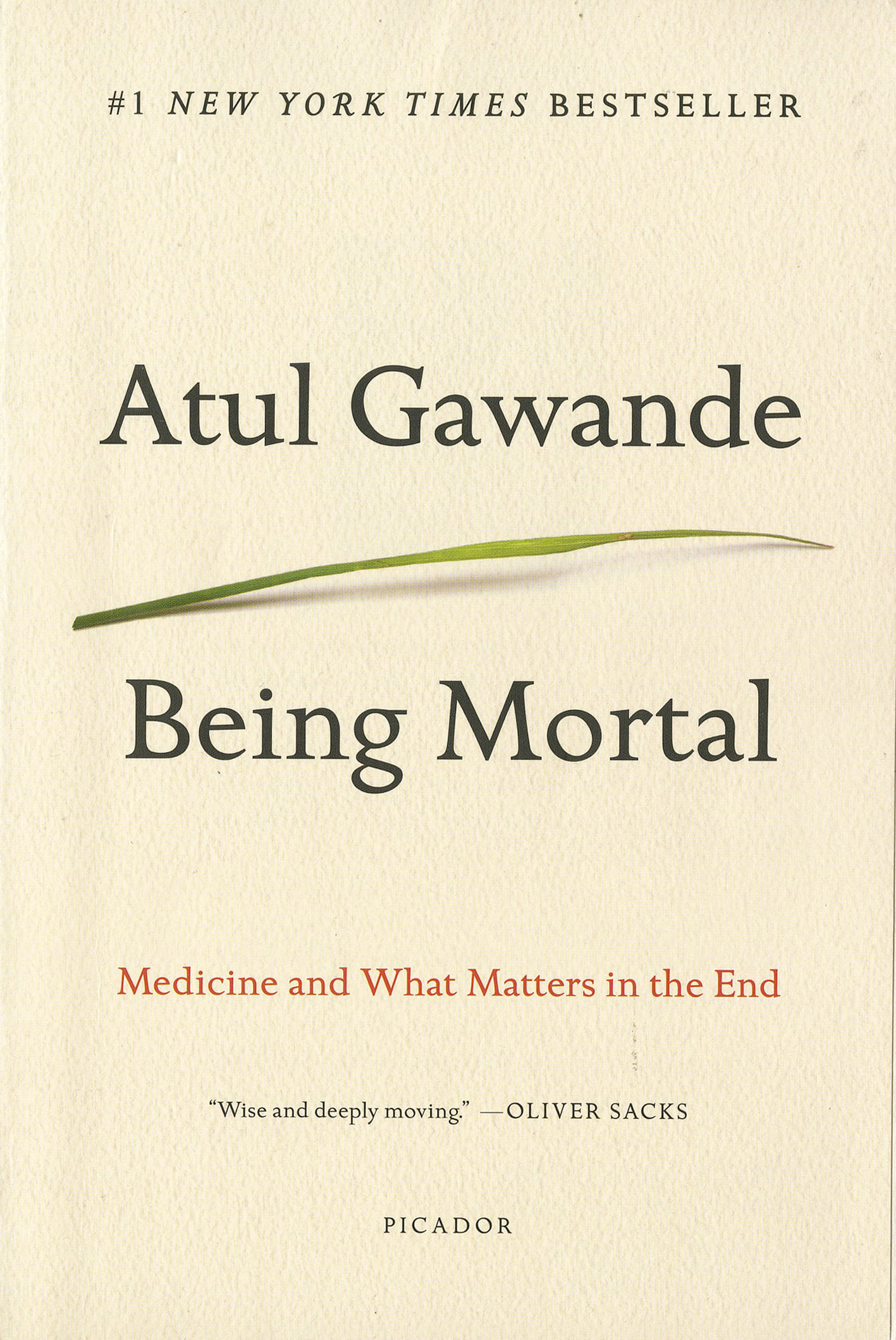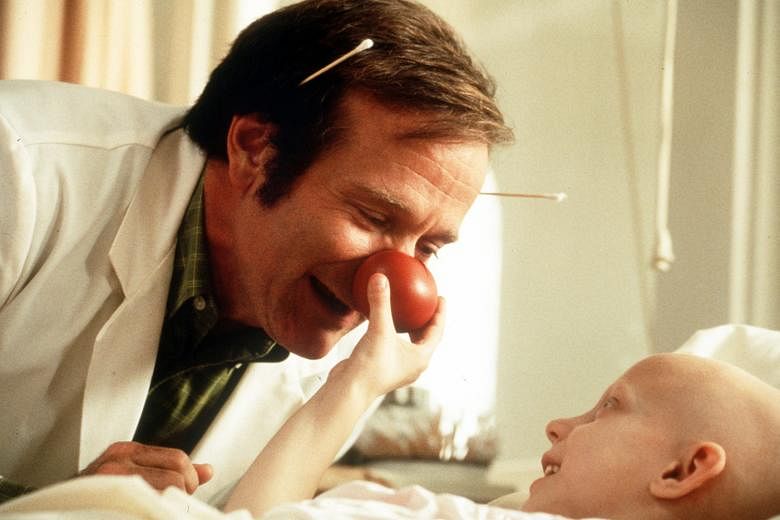BOOK REVIEW
BEING MORTAL By Atul Gawande
Picador paperback/282 pages/$18.89 with GST from Books Kinokuniya or on loan from the National Library Board under the call number English 362.175 GAW [HEA]
It takes a lot of courage for anyone to admit he is wrong.
American doctor Atul Gawande has such strength in spades, going by his litany of medical missteps in the opening chapters of his new book, Being Mortal.
From the get-go, he tells of how his patient, one Joseph Lazaroff, submitted to nine-hour open-spine surgery to remove a massive tumour on his backbone despite the surgeon's many misgivings about that decision.
"What strikes me most is not how bad his decision was, but how much we all avoided talking honestly about the choice before him," Gawande, 49, recalls.
"The chances that he could return to anything like the life he had even a few weeks earlier were zero. But admitting this and helping him cope with it seemed beyond us… We just had another treatment he could undergo."
Gawande continued to avoid the difficult conversations he should have had with other patients, including one Sara Monopoli, who learnt she had Stage IV lung cancer when she was eight months pregnant. She delivered a healthy baby, but died within a year of discovering that she had two types of cancer - Stage IV lung and a slow-growing tumour in her thyroid.
Gawande wanted to, but dared not, broach the subject of whether she should let him excise the thyroid tumour. She was all for surgery; he was against it as it would rob her of whatever quality of life she had left. In the end, she died of lung cancer before they could eyeball the question.
Gawande is, however, no sweaty-palmed medico but one of Boston's most renowned surgeons, specialising in cancer. Last year, the BBC chose him to anchor its prestigious yearly lecture series, the Reith Lectures. He spoke on why doctors fail and then asked his audience whether they thought a human being was more like a hurricane or an ice cube.
By that, he meant that an ice cube would predictably melt instantly in a fire, while hurricanes "follow predictable laws of behaviour but no hurricane is like any other hurricane. Each one is unique".
The point he is making with his confessions in the book is that he and his colleagues tend to treat his patients as if they were ice cubes, not hurricanes.
He is now firmly in favour of treating people as if people were hurricanes, that is, take all the time he needs to ask them difficult questions about how they want to live in the time they have left and, crucially, what are trade-offs they are willing to make to have their way?
So, in his work and in this book, he advocates an approach that Western medicine, at least, considers "radical", that doctors listen to their patients, rather than decide for them what they should do.
He argues that the end in mind for medicine should be to enable the well-being of anyone and not just fix anyone's ailments with stopgap solutions.
He uses few facts and figures in discussing all this, preferring to make his points through the life stories of a select group of patients, whose experiences run throughout the book.
What prompted his change of heart in treating patients was his urologist father's discovery of a rare, and massive, tumour on his spine in 2004.
Gawande, wisely, saves for the last chapter his immensely moving account of watching his father waste away.
He learnt from his weakening father exactly how he wanted to live out his last days and what he would not put up with. The elder Gawande refused to be sedated and tinkered constantly with his pain-killing shots so that he could still host dinner parties, send e-mail to friends and watch movies with his wife - all without the claw of pain and the fog of drugs.
The book ends with Gawande's father breathing his last. As sad and final as this is, the reader will likely close the book feeling lighter and more hopeful. That is because the author proffers a lot of practical insights into medicine's most elusive dilemmas: how to live with dignity and die with grace.
For example, when American physician Bill Thomas became medical director of a nursing home for severely disabled people, he got them a few pets because he felt that would give them something to look forward to daily and so put meaning back into their lives. He was right.
"People who we had believed weren't able to speak started speaking … The lights turned back on in people's eyes," Thomas recalls. His nursing home now includes 100 parakeets, four dogs, two cats, a colony of rabbits and a flock of laying hens.
For so long, Gawande notes, medicine as practised in the United States has been "paternalistic". It began with doctors prescribing their patients only, say, Pill A ,without giving them any alternatives. Eventually, people came to see that they had choices so doctors began asking patients to plump for Pill A or Pill B.
Such paternalism prevails today in the US healthcare regime, although echoes of it are found elsewhere in the world.
He writes: "However miserable the old system has been, we are all experts in it. We know the dance moves. You agree to become a patient, and I, the clinician, agree to try to fix you, whatever the improbability, the misery, the damage or the cost."
With his way of doctors and patients taking turns to listen to one another, however, he says "we are plodding novices. We are going through a societal learning curve, one person at a time. And that would include me, whether as a doctor or as simply a human being".
He also draws on wisdom beyond the medical field for this book, including the philosophies of Socrates, Tolstoy and Nobel economics laureate Daniel Kahneman. For example, he applies Kahneman's theory of fast and slow thinking to pain control. He notes that doctors would ordinarily assume that patients would be most relieved if their cycle of pain should be shortened.
But when he listened to patients, they told him that they could withstand pain best if they were able to have a few minutes without pain at the end of the pain cycle.
As he writes in the book: "People seemed to have two different selves - an experiencing self who endures every moment equally and a remembering self who gives almost all the weight of judgment afterwards to two single points in time, the worst moment and the last one …
"Just a few minutes without pain at the end of their medical procedure dramatically reduced patients' overall pain rating even after they'd experienced more than half an hour of high level of pain."
Most helpfully, he then suggests that doctors start asking their patients the following questions, really listen to their responses and then find ways to fulfil those wishes:
• What is more important to you than living longer?
• What are you scared of?
• What are you willing to give up to get the life you want in the time you have left?
Otherwise, as Gawande likes to say: "Hope is not a plan."
FIVE QUESTIONS THIS BOOK ANSWERS

1 Why is it so hard to help a person as he or she ages?
2 What do the dying fear most?
3 Why do doctors spend little time on ageing and end-of-life care?
4 What options are available for a person to fade out gracefully?
5 What should you ask yourself now to prepare well for the future?
Just a minute
The good
1. Surgeon Atul Gawande's exploration of human frailty is one you will read swimmingly. He is in full command of his subject and, perhaps more importantly, cares so deeply about it that he argues each point as if his life depended on it. He does not, however, allow his impassioned pleas to cloud his narrative, which is clear- eyed and spare at all times.
2. Unlike so many authors who cram their book with characters, Gawande focuses on a select few and carries each of their storylines throughout the book. This enables readers to really understand where each character is coming from and so learn more deeply from their experiences.
3. He has also chosen his select few for the variety of their experiences, from his centenarian paternal grandfather, who walked through his vast farmlands daily, to a young wife who has to decide whether to deny her dying husband food. So every reader should be able to identify with at least one set of circumstances besetting a person he profiles in the book.
4. Readers would naturally find a book so focused on ageing and dying hard to get through, but Gawande lightens their load by knowing just how much to say about the most dire situations and also what is best left out. The best example of this is, perhaps, his father's predicament in the last chapter. He is clear-eyed and does not stint on even the most personal details, but lets the facts speak for themselves. Here he is, for example, on the moment when his father realises that what he dreads most -paralysis - might be his lot: "Around 8am, the housekeeper arrived and found (his father and mother) on the floor. She helped my mother to her feet and my father into bed. That was when my mother called. She sounded frightened. I asked her to put my dad on the line. He was crying, franic, sputtering, hard to understand. "I'm so scared," he said. " Tears wet my eyes. I'm a surgeon. I like solving things. But how do I solve this?"
The bad
1. His book comprises mainly anecdotes, with scientific observations taking a backseat. So readers are presented with disparate strands of practical efforts and innovations to ease the advancement of age. Those who prefer facts to beautifully told stories, however true, will get a rather diffused medical picture.
The iffy
1. He might have featured the views of more doctors in the book to balance his moving profiles. Instead, he often casts himself as the expert to respond to the many dilemmas that people face in confronting illness and death. Perhaps that has to do with his many hats - he operates, researches and writes, and he considers each his calling.

